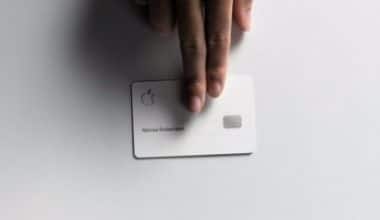College years are among the most exciting times. For instance, it could be the first time you’re living away from home, and you’re eager to feel the freedom that comes with it. You also have an opportunity to make life-long friends. In addition, if you’re studying in a new location, you can explore and experience an environment different from your home.
The college also comes with challenges that cause mental and physical exhaustion. For instance, you have assignments with strict submission deadlines, compulsory classes, and final exams to study for. It could get to a point where you become overwhelmed and don’t have the motivation to carry on. You’ll simply be moving toward what mental health experts call academic burnout.
Student Burnout: What Is It?
In most cases, people associate burnout with work-related activities. As a college student, you can also suffer from this condition. Simply put, student burnout is the mental and physical fatigue from engaging in academic activities for a long time. Examples of these activities include:
- Attending lectures
- Completing college assignments
- Studying for assessments
The above aren’t the only factors that cause academic burnout. You can also experience it when you study in isolation, aren’t registering impressive grades, or facing financial issues in college. Failure to deal with these issues may result in other serious mental health issues, including chronic stress. So, you should assess yourself to determine if you’re suffering from academic burnout and work on a remedy fast.
School Burnout Symptoms
Most college students don’t even know they’re experiencing academic burnout. They dismiss it by saying they’re not just in the mood to study and assume everything will be fine. You shouldn’t adopt this attitude. Instead, assess your body occasionally to determine if you’re experiencing student burnout. The signs could range from physical symptoms to emotional indicators. Some common student burnout symptoms that you should be on the lookout for include:
#1. No Longer Motivated to Study
As a college student, you know the role of motivation in your academic work. It’s what drives you to carry on regardless of numerous challenges. For example, if you dream of becoming a renowned doctor in your town, you always work towards it.
When academic burnout begins, you wouldn’t have any motivation to carry on. You begin feeling like you aren’t good enough for your chosen path. Moreover, you begin questioning if it was a good idea to go to college in the first place.
How bad can this lack of motivation get for college students? You fall behind in your academic work, fail to submit assignments at the right time, and reduce your study hours. Consequently, your academic performance suffers. If you experience prolonged moments of lack of motivation, get to the root cause and look for an effective solution before it’s too late.
#2. Deterioration of Physical Health and Mental Soundness
One of the most noticeable burnout symptoms is a deterioration of overall health. Sometimes, you wake up feeling muscle pains and assume it’s because of the previous day’s activities. While this may be true, it could be academic burnout when it persists, and you can’t find a viable explanation for the exhaustion. Other physical signs associated with burnout include the appearance of skin rashes and strong headaches.
Student exhaustion also gets to your mind and interferes with your mental health. For example, are you finding it difficult to fall asleep? Do you experience consistent unexplainable headaches? If you’ve any of these symptoms, that could indicate that you’re suffering from burnout.
#3. Difficulty Concentrating on Your Studies
Your academic performance depends on your ability to concentrate during your class sessions. If you notice that you can’t focus for more than 5 minutes before you’re distracted, it could be a sign that you’re experiencing academic burnout.
The problem with focusing may not be limited to your lectures. You’ll also experience it during your personal study hours. For instance, you may read the same concept for a long time without understanding it. It means you’re distracted and should look for a practical solution quickly; you could also suffer from chronic stress.
How to Prevent Burnout in College
Some level of college burnout is inevitable for college students. For instance, you must take time to complete your academic projects. However, applying different practical tips can make the work manageable and reduce the chances of experiencing burnout. They include:
- Managing your time expertly
- Seeking academic assistance where possible
- Taking time to enjoy nature
- Balancing social life and academic commitments
- Managing your stress
- Picking a flexible study program
How to Overcome Academic Burnout
For a college student experiencing burnout, it’s not the end of the world. However, you have many practical tips that can help you to recover. Let’s check them out.
#1. Find someone to Explain Your Problem to
One effective way to overcome academic burnout is to find someone to explain your problem to. An excellent example is your college therapist, as they can offer important insight on how to deal with the problem.
#2. Engage in Physical Activities
The tension in your brain causes college burnout. Engaging in physical exercises can go a long way in helping you to reduce this tension. With time, your academic burnout symptoms will reduce, and your mental health will improve.
#3. Take a Break From Academic Work
Academic work could be exhausting for you – it shouldn’t be. Create time to rest when you notice student burnout symptoms start showing up. After you recover from burnout, you can continue your normal activities, including going through the top essay writing review.
#4. Learn to Say No
At times, you always want to help other college students with their academic problems. However, if you spend a lot of time offering this assistance, you may begin experiencing academic burnout. When you’re tired, tell your friends you can’t help them anymore. Take time to recover before you proceed.
10 Tips to Keep College Burnout at Bay
You shouldn’t wait until college burnout gets to you. It could take a lot of time for you to recover from it. So here’re workable strategies to prevent burnout in totality.
#1. Set Realistic College Goals
Some college students set goals that are too ambitious and find it difficult to attain them. Others see what their peers do and copy them. If you’re in any of these categories, you will likely experience college burnout as you struggle to attain your target. To make work easier for yourself, set realistic academic goals. They’ll motivate you to work harder without interfering with your physical health and mental soundness.
#2. Choose a Manageable Course
Selecting a complex course to impress your parents and friends isn’t a good idea. You end up straining to perform to the expected standards. Instead, choose a college program that you’re passionate about. That way, you’ll have the internal motivation to carry on. Besides, you’ll safeguard yourself from experiencing burnout.
#3. Understand Your Body
As an individual, you should know how your body operates. So take a break when you notice you’re pushing yourself too hard and on the verge of academic burnout. That way, you can prevent yourself from experiencing full-blown academic burnout symptoms.
#4. Create an Academic Work Schedule
You have many tasks to complete in college. But, if you think about them wholesomely, you’ll begin to feel overwhelmed. The secret is creating a good schedule for assignments, class sessions, and study hours. Also, create time to rest.
#5. Engage in the Things You Love
A college education isn’t just about academic work. If you’re always thinking about your papers, you will likely experience student burnout. Instead, take time to engage in the activities you love. It could be watching our favorite TV shows, exploring our environment, or playing sports.
#6. Handle One Academic Work at a Time
You can’t work on all your papers at the same time. If you do, you’ll end up with low-quality work. Besides, you’ll experience college burnout. Work on the most urgent tasks, take a break, and proceed to the other tasks.
#7. Sleep Adequately Everyday
Some college students think that sleeping isn’t important for them. So, they spend their completing their assignments or engaging in other activities. One effective to avoid burnout is to avoid sleep deprivation. Instead, sleep adequately to rejuvenate your brain and prepare for the next day’s activities.
#8. Interact With the People You Love
Talking with the people you love positively impacts your mental health. For instance, such individuals make you feel valued, and you can reduce your mental tension in the process. Your time with them also means you take a break from academic work. Consequently, you avoid burnout.
#9. Take a Break From Schoolwork
Some college activities are unavoidable. For instance, it may not be possible to miss a class. At times, you might want to complete your assignments fast. However, taking a break from such activities is advisable when you’re exhausted.
#10. Begin Your Academic Tasks Early
Most college students begin working on their assignments or studying for exams when the due date is too close. The problem with this is that you’ll have a lot of work to complete quickly. Covering this content may overwhelm you, and you may begin experiencing burnout.
Start working on your academic tasks as soon as the professor issues them. That way, you will have ample time to work without experiencing increased anxiety. Moreover, begin studying for your college exams early. It makes everything more manageable.
5 Warning Signals for Digital Burnout
The world is moving to the online space. For instance, people now use digital devices for research, purchasing goods, and entertainment. Besides, online college classes are also becoming more popular. But unfortunately, while the convenience it comes with is plausible, people are also beginning to experience digital burnout, which also contributes to damaging their mental health.
So, what is digital burnout? It’s the exhaustion people, especially college students, experience because of excessive use of technological devices. Some easily noticeable signs that you could be experiencing digital college burnout include the following.
#1. Sleep Deprivation Problems
The screens of digital devices emit UV light. Your sleep quality becomes compromised when exposed to this light for a long time. As a result, you feel exhausted the next day, which adds to your academic burnout problems. As a result, you may not even be enthusiastic to check out the grademiners’ review.
#2. Self-Esteem Problems
Most college students spend their time on social media platforms. They begin feeling worthless if they don’t get the positive reactions they expect from these platforms. If you’re experiencing self-esteem problems, it could be because of digital college burnout.
#3. Increased Anxiety When You See Your Notifications
Heightened anxiety is among the most common burnout symptoms. While digital devices make work easier, it could get to a point where you’re using them excessively. For example, if you always feel the urge to check your phone every time you hear a notification, you’re a step towards experiencing burnout. Reduce the time you spend on these devices to avoid burnout.
#4. Reduced Energy Level
Technological devices take energy from your body without you noticing it. With time, you begin experiencing back pain and strain to see. Don’t overlook such physical symptoms.
#5. Lose of Interest in Other Activities
Spending most of your time online is dangerous. For instance, you may not have time to do what you previously loved. If it gets to this point, it’s time to step back to avoid burnout.
Take-Away
You shouldn’t let burnout ruin your college life. To avoid burnout, take a manageable course, work on your time management capability, watch your sleep quality, and engage in activities you love. If you feel too exhausted, take a break and seek assistance from mental health experts. Always safeguard your physical health and mental soundness by overcoming burnout.






